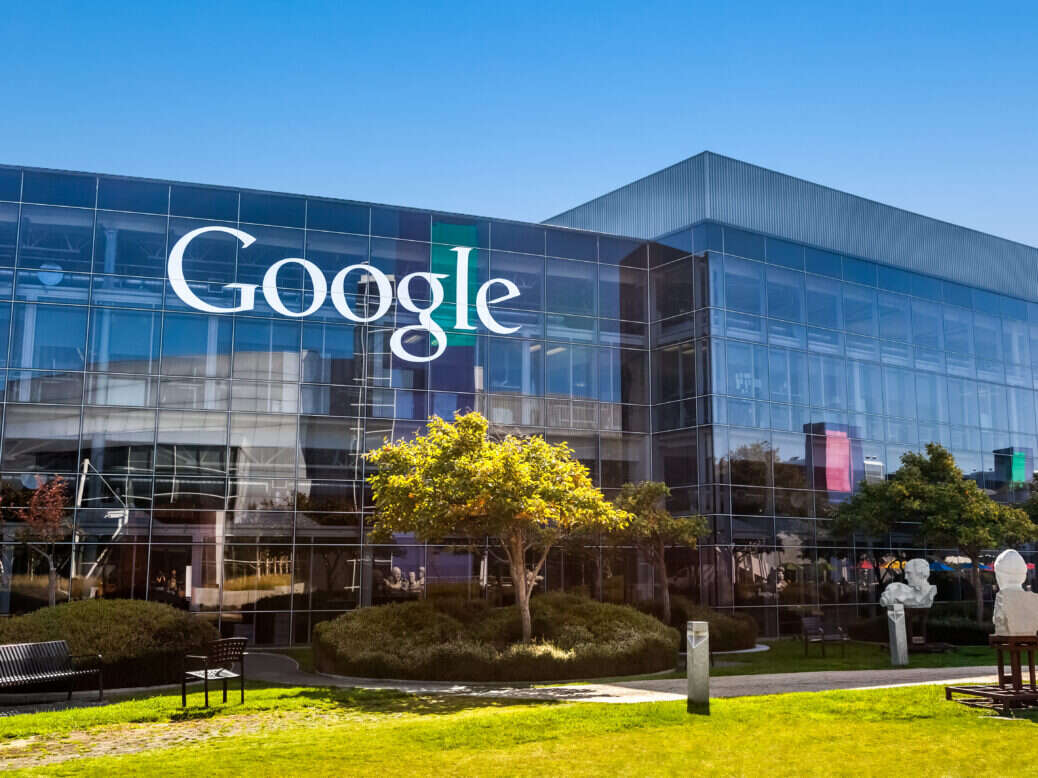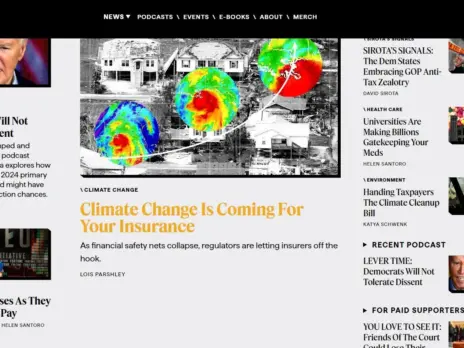
Facebook and Google’s lobbying spending in the US Congress exceed those of all major news media organisations, analysis by Press Gazette has found.
In the past decade, the amount of money spent by the duopoly on influencing politicians in Congress has grown from $5.5 million in 2010 to $28.5 million in 2020, according to data from the Center for Responsive Politics. In contrast, Press Gazette’s analysis suggests the spend by major news media organisations stood at $19.2 million in 2020 having changed little over the decade.
The number of lobbyists representing the duopoly also exceeds the number of lobbyists used by the news media organisations considered as a whole. The tech giants used 168 individuals in 2020, while the media organisations we looked at used 153.
“The big story over the past decade or so is the emergence of these tech companies including Facebook and Alphabet /Google,” says Daniel Auble, a senior researcher at the Center for Responsive Politics. “Their spending has really exploded. That’s the main story with tech lobbying – it’s coming out of nowhere to become one of the biggest spenders and to whatever extent that translates to influence. They’re a big force in Washington now.”
A more detailed look at the lobbying data shows Google has stepped down its spending in the past two years compared to Facebook. But Google’s outlay ($8.9 million in 2020) is still significant.
Press Gazette’s analysis was based on the declared quarterly lobbying spend by a custom list of organisations identified as significantly engaged in news journalism. We excluded broader telecommunications companoes such as Verizon, but included Fox Corporation and media trade associations.
The single biggest spender among them was the National Association of Broadcasters. The industry body spent $160.5 million on lobbying between 2010 and 2020. News Media Alliance (NMA), which represents news organisations more specifically, came second in terms of outlay, spending $13.6 million over the decade.
While the imbalance in spending between the media and the tech giants is stark, it’s not surprising, says Jason Kint.
Kint is the chief executive of digital publisher trade association Digital Content Next, which also lobbies on behalf of digital content producers on Capitol Hill. Back in 2015, it was Kint who did the sums to reveal that almost all the growth in digital advertising was going to Google and Facebook.
“For the news and media industry [lobbying] is less effective and it’s less necessary,” he says. “It’s more about everybody upping their game and being educated and being candid – which is sometimes different from lobbying efforts.”
According to Kint, media organisations also have the upper hand in terms of societal need: people still value high-quality journalism which means they can make their case for change more publicly and have less need to rely on expensive lobbying.
“The most difficult issue was education because without those resources you’ve got to get up to speed with the way the industry actually works,” he says. “The education piece has helped a lot. Once you start to have a pretty level playing field where people understand the basics of the industry then things swing quite a bit because there is a strong interest in protecting journalism and there’s a strong interest in protecting high-quality news and entertainment.
“I know it’s DC and it’s hard to say this with the way the US works but money isn’t everything. That can get them attention and get them favours. But at times, especially with some of the things that have been documented in the last few years with Facebook, when you’re that far off the public interest that puts you at a significant disadvantage. In Washington, the money actually can turn people away in some ways. It’s a delicate balance for them.”
Craig Holman, a Capitol Hill lobbyist at advocacy group Public Citizen, takes a different stance and argues that resources are central to lobbying.
“The size of the lobbying force matters a great deal,” he says. “Part of the reason why the size of the lobby force matters so much is because they’re not hiring just lobbyists. They’re hiring former members of Congress or former congressional staffers, people that have direct connections with Congress, which is a very powerful influence-peddling tool.”
Although the level of detail required in lobbying reports means it is not possible to determine which issues attracted most of Facebook and Google’s lobbying spend, analysis of the number of reports and filings by issue suggests the duopoly don’t just lobby on issues related to the internet, data and technology. Issues such as immigration and taxation also featured prominently among their concerns.
But it’s the issues that also concern the news media which touch on the core business of the tech giants, says Kint.
“The issues that directly affect the media industry – privacy, antitrust laws, content liability – those are what I describe as the third rail of their business,” he says.
“[The duopoly] have a strong willingness to throw a lot of money at anything that’s going to restrict their ability to use data or that’s going to strengthen privacy law in a way that could affect their business.”
One of the pieces of legislation most lobbied on by the duopoly in the past two years has been the Journalism Competition and Preservation Act. The bill, which was advocated for by NMA, would allow news companies to collectively bargain with the platforms – currently prohibited by US anti-trust law.
In 2020, the bill was the joint-second most lobbied on piece of legislation for Google and the fourth-most lobbied on for Facebook in terms of issues and reports filed in both houses.
“It was a very significant bill in terms of putting focus on the issue,” says Kint, adding that the act drew attention to the way that the huge imbalance in power between the platforms and the industry makes negotiation very difficult.
While the bill was cleared from the books at the end of the last Congress it could return under President Biden, Holman says.
“We are going to see a fundamental shift in the regulatory approaches and the legislative offerings in the next two years so bills that died under the Republican Senate and the Trump White House, you can expect they would be reintroduced in the next few years,” he says.
“The Democrats have a certain amount of hostility towards the unregulated social media platforms so I am fully expecting the new administration in the new Congress will be pushing for more government regulation over social media, both in terms of how they get their money and the content of ads and messages on social media.”
Recent developments in Australia could also be encouraging for US media, says Kint. Imminent new regulations forcing Google to pay publishers for news have led the tech giant to negotiate with media companies in the country.
The news media organisations and trade groups we looked at included: ABC TV Affiliates Association, Advance Publications, Al Jazeera Media Network, American Society of News Editors, Association of Public Television Stations, Bloomberg, Digital Content Next, DMGT, Fox Corporation, Hearst, Hubbard Broadcasting, McClatchy, MPA – The Association of Magazine Media, National Association of Broadcasters, News Corp, NewsMax Media, News Media Alliance, PBS, San Diego Union-Tribune, Seattle Times, Thompson Reuters and Times Shamrock
This article is part of a series running across our sister titles in the Monitor Network and the New Statesman, looking at the backlash against the big tech companies. If you enjoyed this article, you might like:
- Digital power: How Big Tech draws its influence (Tech Monitor)
- Big Tech lobbying: The US bills tech giants targeted in 2020 (Tech Monitor)
- Adam Curtis: “Big Tech and Big Data have been completely useless in this crisis” (New Statesman)
Email pged@pressgazette.co.uk to point out mistakes, provide story tips or send in a letter for publication on our "Letters Page" blog






